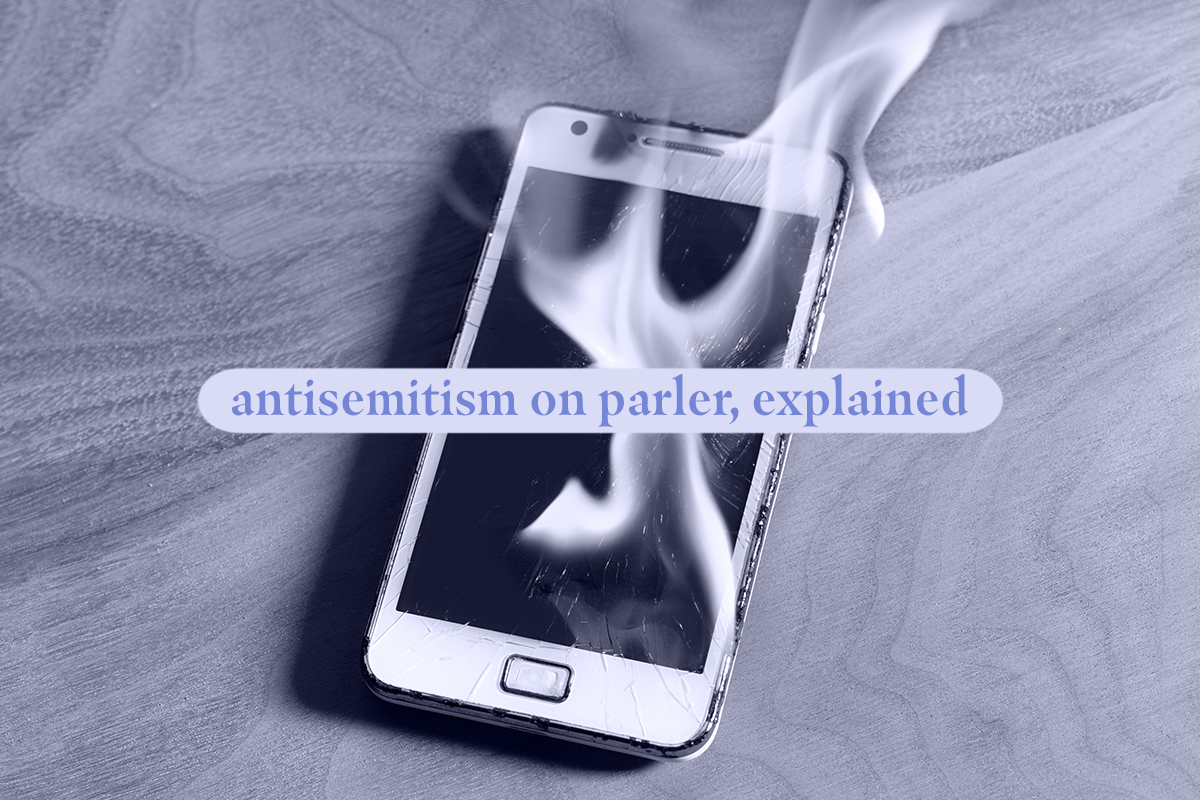Singing in the streets, banging pots and pans, and interminable car horns of every metro city were the collective sounds of November 7, 2020 in America. Liquor stores in Washington DC sold more champagne in that one day than in the last two years, according to Newsweek. As half the country celebrated the historic victory of Joe Biden and Kamala Harris, another record was broken — the Parler app climbed to the most downloaded free app in the United States’ Apple and Google app stores in the days following the election.
But here’s the rub: Parler is used by some of the most dangerous white supremacist groups online.
So what is Parler, who’s using it, and why should you care? Let’s dive in.
What is Parler?
Founded in 2018 by John Matze and Jared Thomson, Parler is a social media app that wants its users to “speak freely and express yourself openly, without fear of being ‘deplatformed’ for your views,” according to its homepage.
Parler, which amassed 8 million new members as of November 9, received endorsements from conservative pundits and politicians imploring their supporters to follow them on the platform. The migration, which the right calls “Twexit,” came after Twitter’s crackdown on election misinformation.
“It’s kind of like a digital version of a Trump rally now,” explains Rachel Greenspan, an INSIDER digital culture reporter who covers extremism and misinformation. She describes Parler as an “echo chamber” — an on-the-nose epithet when you realize Parler’s version of the retweet is aptly called an “echo.”
Parler is more than just conservatives fed up with Twitter and Facebook’s community guidelines, though. The platform has also attracted an amalgamation of conspiracy theorists, white supremacists, and other fringe groups.
“While Parler is not an extremist platform, the site hosts a significant and growing number of users who adhere to a wide variety of mostly right-wing extremist ideologies,” the ADL shared in a recent blog post.
Radicals who were once relegated to seedier parts of the internet have found a home in Parler’s social ecosystem.
So what’s Parler like?
After signing up, users are recommended to follow a list of popular accounts that includes right-wing news anchors and organizations, Republican politicians, and various conservative voices.
Refreshing the desktop version of Parler to see the “suggested hashtags” feels a lot like watching a slot-machine: Instead of bells and cherries, a surprising number of right-wing talking points fill the window. For me, suggested hashtags like #SaveTheRepublic, #DemocratCorruption, #Tyranny, #Lies, and #Awakening (a popular QAnon phrase) populated the screen at the time this article was written.
Wow, sounds like a real fun place!
We know…
How does an “unbiased” social network actually work?
Perhaps the most prominent departure from the mainstream social media models is Parler’s lack of fact-checking.
False claims are “running completely unchecked on Parler,” explains Greenspan. Parler users can report sensitive content, unsolicited advertising, intellectual property and trademark violations, and child-related crimes, but there is no existing function to report misinformation.
Of course, being conservative, pro-choice, or crowning yourself with the “patriot” moniker won’t get you deplatformed or fact-checked on mainstream social media sites — posting harmful misinformation will. “It’s worth noting that most of what the issue here is not a difference of opinion, it’s actually false information,” says Greenspan.
As Greenspan opened Parler, she found a paid promotion from Marjorie Taylor Greene, the QAnon supporter and recently-elected U.S. House Representative of Georgia’s 14th congressional district. The post at the top of her screen read: “Democrats are working overtime to steal this election,” a claim Greenspan immediately disproved as false.
The new House member is one of many conservative voices to adopt the phrase “Stop the Steal.” The sentiment is echoed across the platform with #StopTheSteal raking in 272,000+ posts (or “parleys”) despite election officials confirming with the New York Times that there “was no evidence that fraud or other irregularities played a role in the outcome.”
Trump’s unwillingness to acknowledge the election result has emboldened supporters to rally behind his untenable allegations of a stolen election, and it’s all happening right on Parler.
“It’s extremely dangerous, because people are basically now living in this alternate reality,” says Greenspan.
Is there a lot of antisemitism on Parler?
Parler’s feed populates with the accounts users choose to follow, but clicking on a hashtag can easily lead you down a rabbit hole of radicalizing, and yes, often antisemitic content.
One of the most widely-used hashtags on the platform is #Trump2020. If a user clicks on the hashtag, they are brought to a feed aggregated with every recent post using the hashtag. This becomes complicated and formidable when extremists on the fringes also use those same popular keywords in order to attract new followers.
For example, when I looked through the app, one user shared #AmericaFirst alongside the sinister hashtag #HitlerWasRight. Another user posted a video promoting the National Justice Party, a white nationalist organization that believes whites are being eliminated, according to the Southern Poverty Law Center. Within the caption, the user included 20 swastikas above pro-Trump hashtags like #MAGA and #TrumpTrain.
Perhaps one of the more alarming tactics of extremists is their use of Parler to link to third-party messaging apps. In a post using various pro-Trump hashtags, one neo-Nazi account invited users to enter a Discord server to “talk with others like you.” The user’s profile uplifted Holocaust denial videos, spread antisemitic conspiracy theories, and used racial slurs. (In 2018, Slate called the gaming app Discord “a safe space” for white supremacists to communicate.)
The Proud Boys, a far-right group that made headlines when Trump advised them to “stand back and stand by” at the second presidential debate, have garnered approximately 219,000 followers on Parler.
Sandwiched in between posts uplifting Kyle Rittenhouse, the 17-year-old who murdered two protesters and injured one at a Black Lives Matter protest in Kenosha, Wisconsin, are invitations to find a local Proud Boys chapter.
To be clear, Parler states in its Community Guidelines that it will not “knowingly allow itself to be used as a tool for crime, civil torts, or other unlawful acts.” Crime and threats can be reported by members. But white nationalists and far-right groups are still using Parler as a path to promote their chat rooms and memberships.
Wow, that was a lot.
Take a deep breath because there’s more…
It comes as no surprise that QAnon would flourish on Parler. You know, QAnon, the baseless conspiracy theory that a cabal of pedophiles led by the Democrats is running child sex-trafficking rings, killing children and harvesting their blood for a psychedelic drug called “adrenochrome.” Oh, and they believe Donald Trump leading the fight against the Satanic deep-state. (Yes, that’s also a lot. We’ve got an explainer for it.)
Facebook, Twitter, YouTube, and TikTok all recently took action to remove accounts sharing QAnon content after the FBI labeled the movement a terrorism risk. Before the great conservative #Twexit of 2020, Q conspiracy accounts were goading their followers to create a Parler in case their Instagram accounts got “nuked” — i.e. disabled for violating Community Guidelines.
The WWG1WGA hashtag, an abbreviation for the Q motto “Where We Go One, We Go All,” is included in more than 390,000 posts across Parler.
What does the future hold for Parler?
Parler’s future may feel dubious, but we’ve seen what happens when conspiracies and misinformation roam free.
Will the misinformation on Parler become an untamable issue that leads to further mistrust in our government and press? The amassed battalion of social media misfits, curious conservatives, and blatant white supremacists joining under one app is surely testing the limits.



